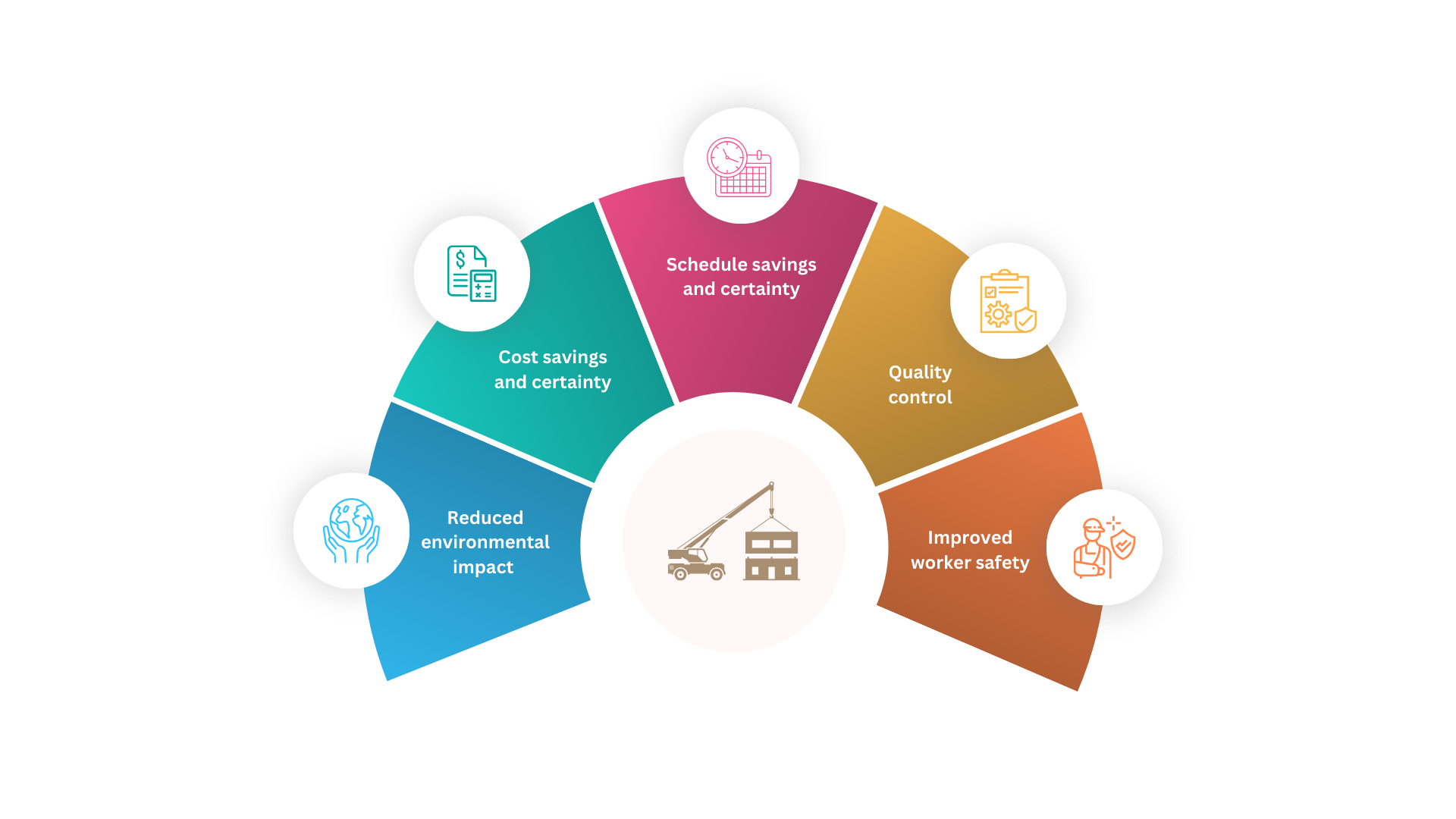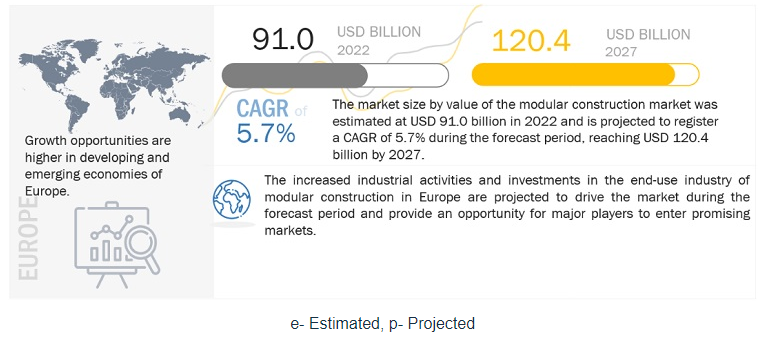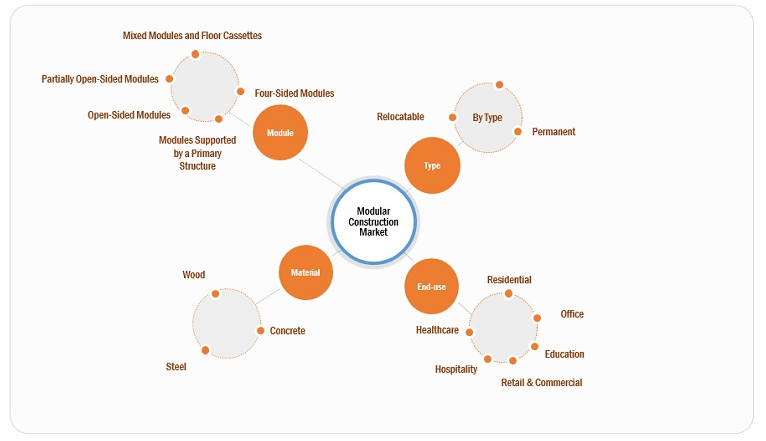
The Future of Modular Homes in Europe: A Promising Horizon
In today's swiftly changing world of construction and housing, modular homes have emerged as a revolutionary solution, offering innovation in sustainable and efficient living. In this blog post, we'll delve into the future of the modular home market, with a special focus on Europe. Our insights are derived from a comprehensive report by Straits Research*.
The Rise of Modular Homes in Europe
Europe, renowned for its historical contributions to architecture and urban development, is no stranger to innovation. In recent years, the region has witnessed an extraordinary surge in the popularity of modular homes. This surge is fueled by a spectrum of factors, including sustainability, efficiency, and the pressing need for affordable housing solutions.

Key Trends and Predictions for the European Modular Home Market
- Sustainable Living: Europe has been at the forefront of sustainable living practices, and modular homes dovetail seamlessly with this ethos. The report signals a growing inclination toward eco-friendly modular construction materials and energy-efficient designs in the European market. Modular homes are anticipated to play a pivotal role in achieving the region's ambitious sustainability objectives.
With growing concerns about environmental impact, modular construction offers a sustainable alternative to traditional building methods. The manufacturing process generates less waste compared to on-site construction, as materials can be recycled and reused. Modular homes also have a smaller carbon footprint due to reduced transportation and energy consumption during construction. Modular homes are designed with energy efficiency in mind. The controlled factory environment allows for precise insulation installation and the use of advanced materials that minimize heat loss and maximize energy conservation. Additionally, modular homes can incorporate renewable energy systems such as solar panels, further reducing energy consumption and utility costs. It's a win-win for both homeowners and the planet. - Urbanization and Space Optimization: Europe's urban centers are grappling with rapid population growth, resulting in heightened housing demand. Modular homes offer a solution by optimizing space and providing quick, efficient construction. The report underscores an expected surge in modular home projects within urban areas across Europe.
Modular homes can seamlessly fit into urban environments and offer several advantages that make them a viable and attractive housing solution for cities. In densely populated urban areas, where land is at a premium, modular homes can be constructed on smaller lots or even in unused spaces, such as infill lots between existing buildings. Their compact design allows for efficient use of urban space. Modular homes are constructed off-site in a factory-controlled environment, which significantly reduces construction time. - Customization and Architectural Diversity: Modular homes in Europe have broken free from the confines of cookie-cutter designs. The market is undergoing a transition towards customizable and architecturally diverse modular structures. European homeowners increasingly seek bespoke modular solutions that mirror their unique tastes and lifestyles. Also, modular homes can be tailored to meet the unique needs and architectural styles of urban areas. They can blend seamlessly with existing buildings or add a modern touch, depending on the urban landscape and preferences of the community.
- Off-Grid and Self-Sufficient Homes: As sustainability takes center stage, the European modular home market is warmly embracing off-grid capabilities. Numerous homes are now equipped with renewable energy systems like solar panels and advanced energy storage, reducing dependence on traditional power grids and shrinking carbon footprints.
- Smart Home Integration: Europe has swiftly embraced smart home technology, and modular homes are no exception. The report posits that advanced smart home integration will become a standard feature in European modular homes, enhancing convenience, security, and energy efficiency.
- Government Support: Several European governments are proactively endorsing modular construction as part of their housing and sustainability initiatives. Anticipated financial incentives and policy backing are set to further propel the growth of the modular home market in the region.
Challenges and Opportunities
While the future of the European modular home market appears promising, it is not without its challenges. Regulatory frameworks, supply chain management, and public perceptions such as that modular homes have lower quality, lack aesthetics, or come with limited size options, are some of the hurdles that require attention. However, these challenges concurrently present opportunities for innovation and industry collaboration.

Conclusion
The future of modular homes in Europe is distinguished by sustainable living, architectural diversity, and advanced technology integration. As the region maintains its commitment to eco-consciousness and efficient urban development, modular homes are primed to play a pivotal role in reshaping the European housing landscape.

The future is bright, with continued advancements in technology, design flexibility, and sustainability practices. Modular homes offer homeowners comfortable living spaces that are energy-efficient, sustainable, and customizable. The human-oriented approach in modular construction ensures that homeowners' needs, and well-being are at the forefront of design and construction processes. As the demand for affordable, eco-friendly housing grows, modular construction is poised to play a significant role in shaping the future of the real estate industry. Embrace the future of comfortable living with modular homes, where energy efficiency, sustainability, and well-being converge.
As Europe steers towards a greener, more sustainable future, modular homes are not just a trend but a fundamental part of the solution. The horizon is indeed promising for modular homes in Europe, offering an inspiring vision of housing that is efficient, eco-conscious, and tailored to the needs and aspirations of its residents.
*For a more comprehensive analysis of the European modular home market, we recommend exploring the detailed Modular Construction Report by Straits Research. The insights contained therein provide a valuable roadmap for industry stakeholders, policymakers, and anyone intrigued by the exciting future of modular homes in Europe.